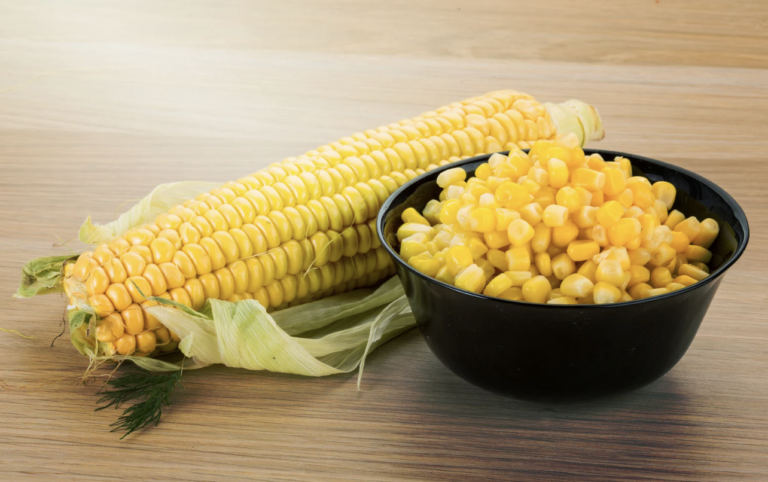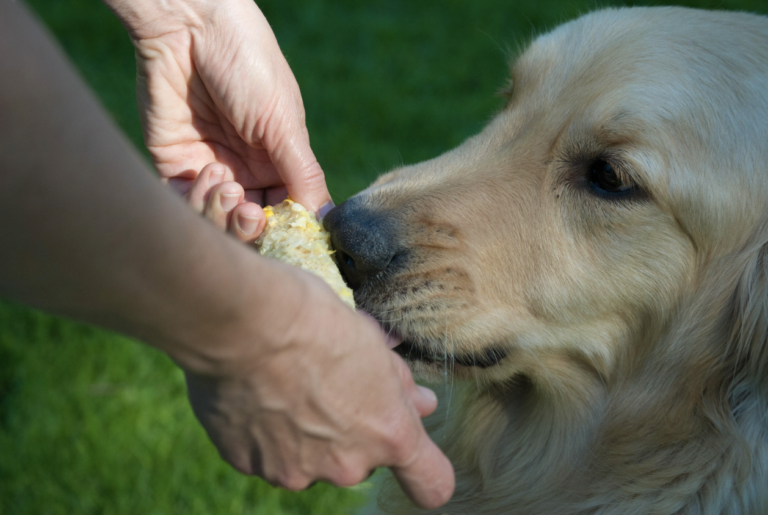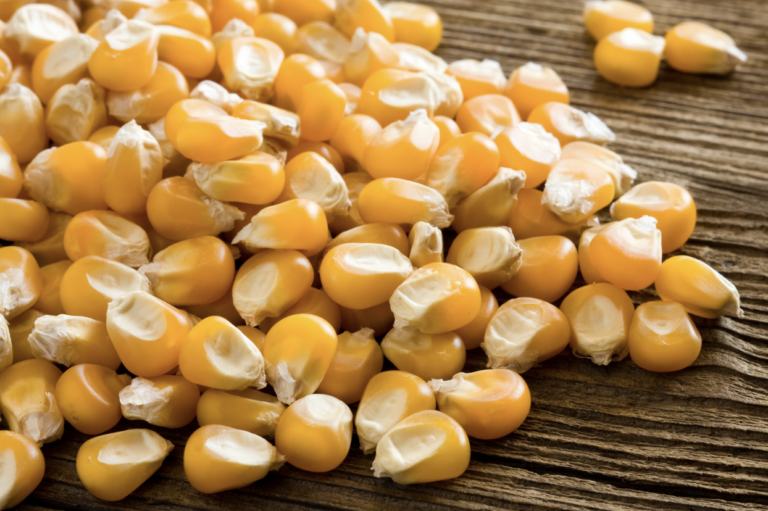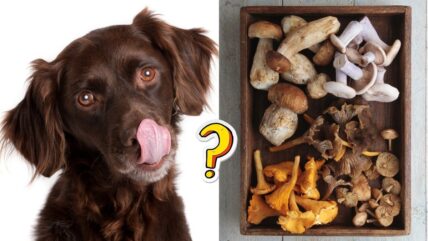Corny Controversy: Can Dogs Eat Corn, or Is it Just a Filler For Cheap Dog Food?
Corn is a controversial ingredient in the commercial dog food industry and among dog owners with polarizing arguments both for and against its use. Some people say corn is safe for dogs to eat and a beneficial carbohydrate that optimizes your dog’s diet. Opponents of feeding corn to dogs say that it’s a cheap filler grain used in place of more nutritious ingredients and that dogs eating a diet high in corn can experience health issues.

I suspect the truth is somewhere in the middle, but one thing is certain—you don’t need to be afraid of your dog eating corn. Let’s get into some of the facts and outright myths about feeding your dog corn, and explore safe ways to introduce this vegetable into your dog’s diet.
Can Dogs Eat Corn?
Yes, dogs can eat corn! Dogs can safely eat cooked or raw corn, but cooking corn helps to make it more digestible.
No part of the corn plant is toxic to dogs, although they should only eat corn kernels and never the cobs, husks, or stems. Corn is a starchy vegetable often classified as a grain and used primarily as a source of carbohydrates in commercial dog food recipes.
Dogs can be allergic to corn, but the allergy is somewhat rare. Still, if you’re concerned your dog could have an allergy to corn, it’s a good idea to talk with your vet about your options.
Is Corn Healthy For Dogs? Nutrition & Benefits

It’s hard to say with certainty whether corn is “healthy” for dogs without having something to compare it to. Corn is not unsafe or harmful to dogs, but is it necessarily a healthy choice compared to something like, say, animal protein?
Like all vegetables and grains, corn contains key nutrients that dogs can digest and absorb. However, those nutrients are only accessible if the corn has been properly processed and the dog eats large quantities of it. If their everyday dog food contains corn, they will most certainly receive some of the nutrition found in this grain. If they eat corn as an occasional treat, your dog probably won’t experience many nutritional or health benefits.
The question is not whether corn has nutritional value, but whether or not corn is the best source of this nutrition for the canine diet.
Of course, you can’t always choose the absolute best source of nutrition. Not for yourself, and not for your dog. Before we talk more about the nutrients found in corn, take a moment to remember that as long as your dog is fed, happy, and healthy and you can afford their dog food, that is the right dog food for you!
Key Nutrients Found in Corn

The most significant nutrient (when it comes to canine nutrition) found in processed corn is resistant starch.
Fresh corn is not a good source of dietary fiber for dogs, even if it has been cooked. Corn used in commercial pet foods has been ground and cooked and often extruded to make it more digestible and nutritionally available.
When corn is extruded it creates resistant starches—non-digestible carbohydrates that help to promote colon health by moving through the digestive system. Instead of being used by your dog’s body for energy, the resistant starch carbohydrates work in the same way as dietary fiber, creating prebiotics, and supporting good gut bacteria.
Theoretically, dog foods formulated with corn could also provide antioxidant support to dogs, thanks to the carotenoids—or organic pigments—found in this grain. Extrusion is one of the best methods for preserving carotenoids as compared to other processing methods used in the commercial dog food industry. Still, the actual immune-supporting benefit of corn in dog food is questionable.

Glycemic Index of Corn
One of the main claims of those who believe corn is beneficial for dogs is that it has a low glycemic index. The glycemic index is a system of organizing foods by how much they can increase blood sugar levels within one hour. Saying that corn has a low glycemic index is a little misleading. Corn does fall within the “low” section of the glycemic index at 50-55, but the glycemic index of chicken is 0.
The glycemic index only applies to foods that contain carbohydrates/sugars, and there are many other sources of carbs with a lower GI than corn.
Protein Content of Corn
Some claims say that corn can be a good source of protein in dog food, but the actual protein content of corn is negligible when compared to other foods. It’s also worth noting that corn is also relatively high in sugar, and fresh corn has an almost equal ratio of protein to sugars—not ideal for your dog’s needs.
Can Dogs Eat Corn? FAQ

Can dogs eat sweet corn? Yes, they can, but can dogs eat corn cobs? What about corn-related foods? Does corned beef count as corn? Get answers to all of your questions about your dog and corn!
Can dogs eat corn on the cob?
No! Dogs should never eat corn on the cob—if you want to feed them corn, cut the kernels off. Can dogs have corn cobs at all? No! Corn cobs are a choking hazard and could create serious health problems like intestinal blockage. Contact your vet if you know your dog has eaten a corn cob—even if you see no signs of an upset stomach, your vet may want to examine or observe your dog just to be safe.
Can dogs eat corn husks?
No, corn husks are not digestible and could give your dog an upset stomach. Eating too many corn husks could also cause issues like intestinal blockage.
Can dogs eat canned corn?
No. Canned corn contains extra ingredients—like salt and seasonings—that can upset your dog’s stomach and aren’t safe for them to eat in large quantities.
Can dogs eat baby corn?
Yes! A single baby corn is a great treat for your dog, as long as it is free from seasoning, salt, or oil.
Can dogs eat cornstarch?
Yes. You shouldn’t encourage your dog to eat cornstarch on its own, but if they get into a container and have a few licks they should be fine. Cornstarch is also a safe ingredient to use in dog treats.
Can dogs eat popcorn?
Yes, dogs can have plain air-popped popcorn! For lots of dogs eating popcorn is a full-on sensory experience—they love the crunch. To make popcorn dog-friendly, it should be air-popped, un-buttered, and free from salt or other seasonings.
Can dogs eat kettle corn?
No. Kettle corn is high in added sugar, fat, and salt. If your dog gets ahold of a few pieces of kettle corn they should be fine, but human foods like kettle corn should never be used as a treat for your dog.
Can dogs eat corn tortillas?
Yes. Dogs can have small pieces of plain corn tortilla as an occasional treat. Be aware that some corn tortillas are made with lard and salt, which might upset your furry friend’s stomach.
Can dogs eat corn chips?
No. If your dogs eat a few chips on accident that’s okay, but it’s not a good idea to feed your dog corn chips on purpose. Corn chips are high in salt and fat, and not good for your dog to eat regularly.
Can dogs eat corn nuts?
No. Corn nuts are deep-fried, heavily salted, and seasoned. They aren’t a safe treat for dogs and could give your dog stomach trouble.
Can dogs eat creamed corn?
No. The dairy, salt, fat, and seasonings in creamed corn aren’t good for dogs and could give them serious GI issues like vomiting and diarrhea.
Can dogs eat cornbread?
Can dogs eat corn muffins or cornbread? No—unless they are made specifically for dogs. Cornbread for humans is high in sugar, salt, fat, dairy, and other ingredients that aren’t safe for dogs to eat.
Can dogs eat cornflakes?
Occasionally. Cornflakes aren’t formulated for dogs, so it’s not a good idea to use them as a regular treat for your dog. If your dog likes cornflakes and wants one or two now and then, that’s okay, but don’t turn it into a routine.
Can dogs eat candy corn?
No! Candy corn is basically just sugar and you should never feed it to your dog.
Can dogs eat corn dogs?
No. Corn dogs are high in sodium and other ingredients that can upset your dog’s stomach. The stick in the middle of a corn dog is also a serious choking hazard and should be kept far away from your dog.
Can dogs eat corned beef hash?
No. You should not feed your dog corned feed or corned beef hash, which is extremely high in sodium and is likely to upset your dog’s stomach.



